Is Belgium Expensive
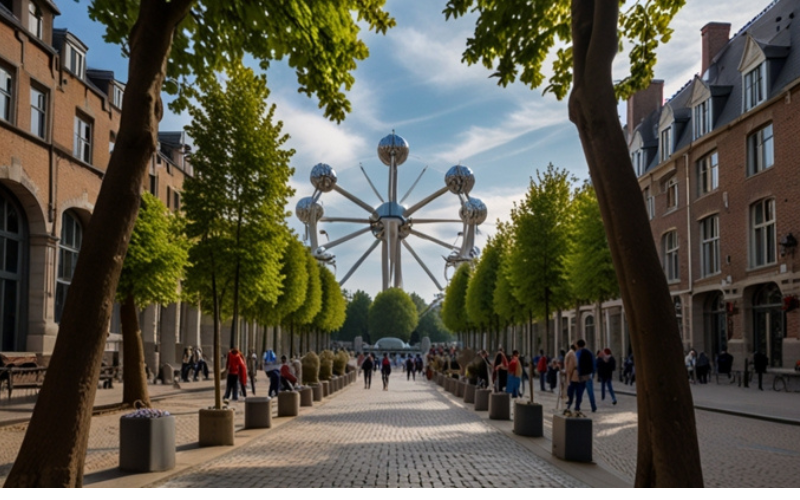
Introduction
Belgium is such a delightful destination, famous for its charming historic cities, breathtaking architecture, vibrant art scene, and delectable chocolates and beers! However, for those planning to travel or move there, a frequently asked question pops up: Is Belgium pricey? This article takes a friendly look at the costs involved with visiting or living in Belgium, helping you determine if this lovely country fits your budget.
Whether you’re gearing up for a quick getaway to wander through Belgium’s picturesque streets and lively markets or contemplating a longer adventure, having a grasp on expenses can truly enhance your experience and make it unforgettable. Here’s a friendly guide to the key costs you might come across.
Factors Affecting Cost
Accommodation
When it comes to accommodation, Belgium offers a range of options to suit different budgets:
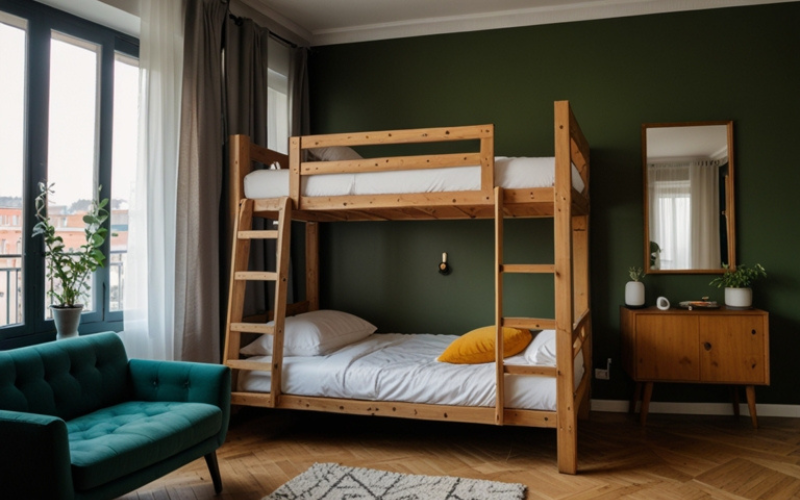
Hotels – Depending on category it also vary from five star luxurious hotels to low range economy/business hotels/heavy hotels chains. Compared to a private apartment, you shouldn’t expect to pay less than €70 or more than €250 per night, depending on the city and service features.
Hostels – Most hostels are cheap, with bed and breakfasts for as low as €15 and as high as €40 for dormitory beds. Again, private rooms cost from €50 to €100.
Airbnb – This choice offer many options, with costs varying between 40 € for a studio to over 200 € for splendid villas.
Seasonal costs are also an influence; service costs are normally higher during high travel periods, such as in the summer or over holidays.
Food and Dining
Food is a highlight in Belgium, and costs can vary based on where you choose to dine:

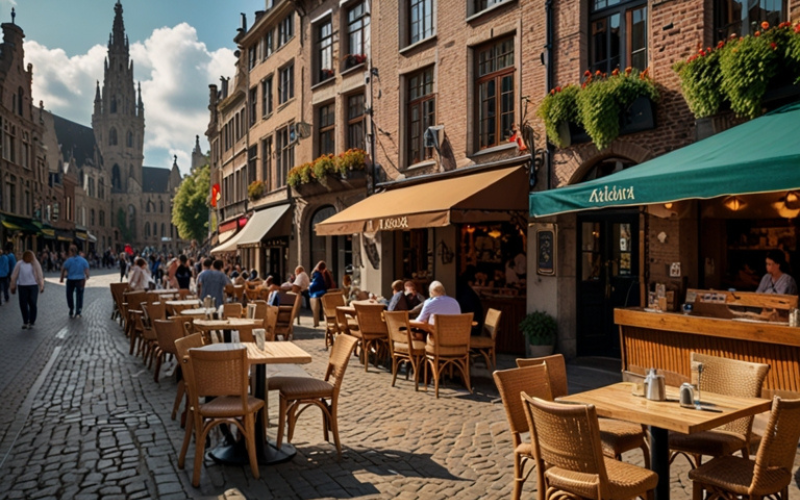
Typical Meals – A meal at an inexpensive restaurant costs around €15, while a three-course meal at a mid-range restaurant will set you back €60 or more.
Local Delicacies – Enjoying local favorites like mussels, fries, and waffles can be done affordably on the streets, often costing less than €10.
Dining Options – For budget-friendly eats, street food offers delicious choices at lower prices, whereas upscale restaurants cater to a more luxurious experience.
Transportation
Getting around Belgium is fairly straightforward with public transportation:
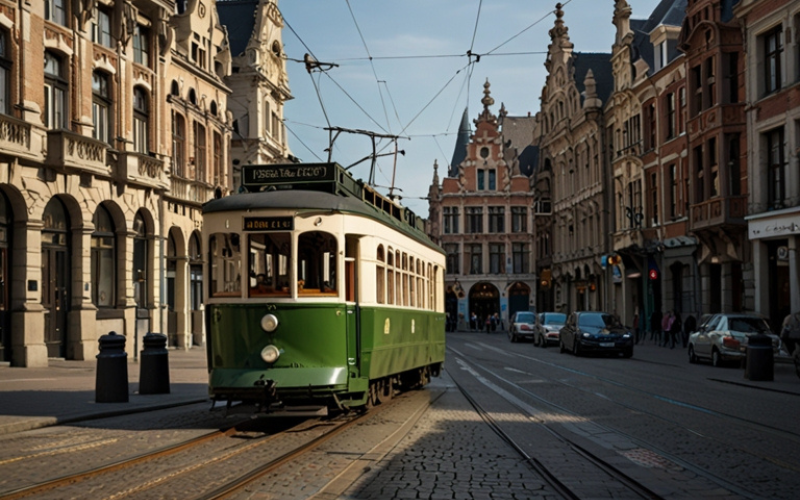
Public Transport – Belgium’s public transport is well-connected. A single ride on local buses or trams is approximately €2.5, while day passes cost around €7.
Trains – Train travel is efficient for moving between cities. A one-way ticket between Brussels and Bruges costs about €15, while a round-trip train ticket to Antwerp is around €20.
Saving Tips – Look for discounted multi-day passes, and if you’re under 26, Belgium offers a Go Pass with unlimited travel for €7 per trip.
Entertainment and Attractions
Belgium offers both paid and free experiences, making it accessible for different budgets:
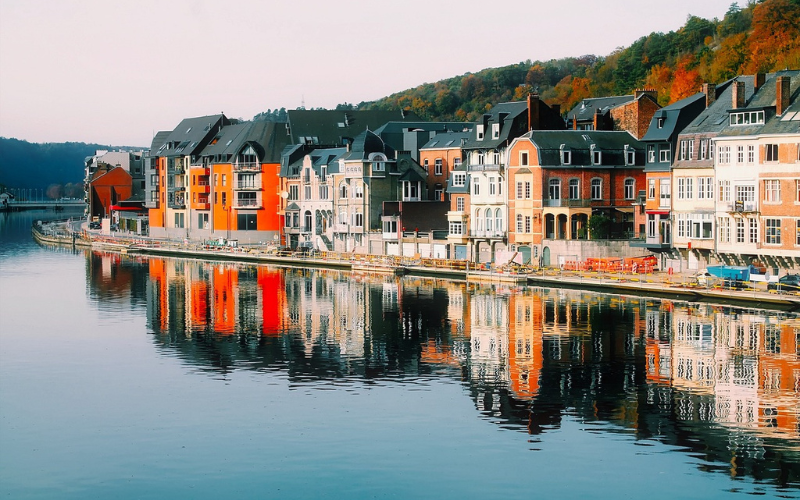
Entrance Fees – Popular attractions like the Atomium in Brussels or Gravensteen Castle in Ghent have entry fees ranging from €8 to €15. Many museums offer discounts for students, seniors, and children.
Free Activities – Walking through historic districts, visiting markets, and admiring city squares are free. Check local event schedules for free concerts, parades, or festivals.
Discount Passes – Belgium offers city passes, such as the Brussels Card, which provides entry to multiple attractions and discounts on public transport.
Shopping and Souvenirs
Belgium is known for its unique shopping experience:
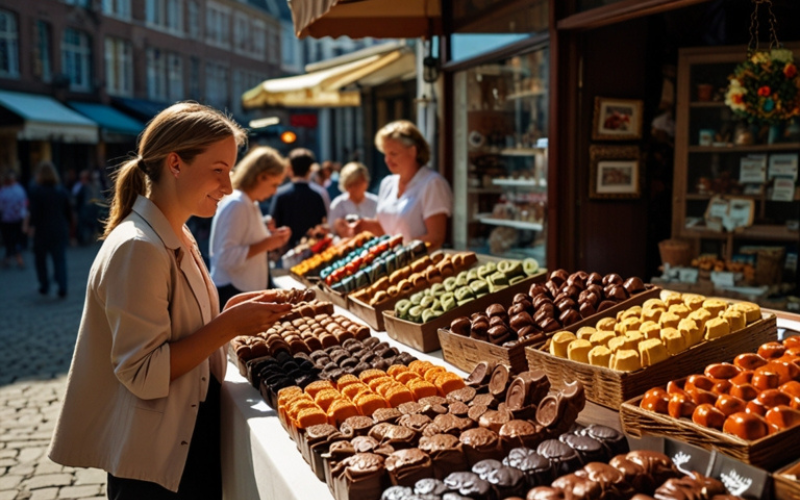
Shopping Costs – Prices for common items like chocolate or lace can range significantly. A box of Belgian chocolates might cost around €10 to €30.
Markets vs. Retail Stores – Markets can offer local products at better prices, while retail stores might have higher pricing for branded items.
Souvenirs – Unique souvenirs, like Belgium’s famous lace or beer, make perfect gifts, with prices varying based on quality and craftsmanship.
Cost Comparison with Other European Destinations
When comparing costs across European countries, Belgium often proves more economical than Paris, though it may be on par with other French cities such as Lyon.
In contrast to the Netherlands, particularly Amsterdam, Belgium typically offers more budget-friendly options for meals and lodging.
While Germany might be marginally less expensive, especially in its smaller urban areas, Belgium provides comparable value, particularly for those interested in exploring historical and cultural attractions.
Money-Saving Tips
Best Time to Visit – The spring and early autumn seasons present a harmonious blend of favorable climatic conditions and affordable pricing.
Use Travel Apps – Applications such as Citymapper, Visit Belgium, or Trainline can furnish live transportation updates and promotional offers.
Budget Friendly Activities – Engage with Belgium’s parks, complimentary guided walking tours, and community festivals to fully experience the local culture while remaining within budget.
Potential Costs for Specific Travelers
Solo Travelers
Belgium provides a secure environment for solo travelers, offering economical lodging alternatives such as hostels and reduced admission prices for individual patrons at museums and various attractions.
Families
Belgium caters to families, featuring financial incentives on children’s tickets at the majority of attractions. Museums and amusement parks frequently offer cost-effective family packages.

Business Travelers
Business accommodations in Belgium generally range from €120 to €250 per night, with many establishments offering complimentary Wi-Fi and conference facilities. Prime locations are favored for efficient access to key cities, including Brussels.
FAQs
The daily expenditure fluctuates, yet budget-conscious travelers may allocate approximately €50-€70, whereas those desiring a more luxurious experience might plan for €100-€150.
A week in Belgium could cost between €400 for budget travelers and €1,000 for individuals opting for mid-range accommodations.
Tipping is not obligatory; however, certain establishments may incorporate a service fee. It is advisable to review your bill to prevent unexpected charges.
Brussels and Antwerp are generally more expensive, while cities such as Ghent and Liège present more economical alternatives.
It is typically comparable to Western Europe but is generally more budget-friendly than France or the Netherlands, especially regarding dining and local attractions.
Conclusion
With proper planning, visiting Belgium can be an affordable and rewarding experience. The country’s allure and diverse cultural offerings make it a compelling destination. Travelers can optimize their budgets by carefully selecting accommodations, dining options, and attractions, allowing them to fully appreciate Belgium’s historical significance and contemporary features. By making informed choices and immersing themselves in the country’s unique experiences, visitors can create lasting memories that outweigh the financial investment.
